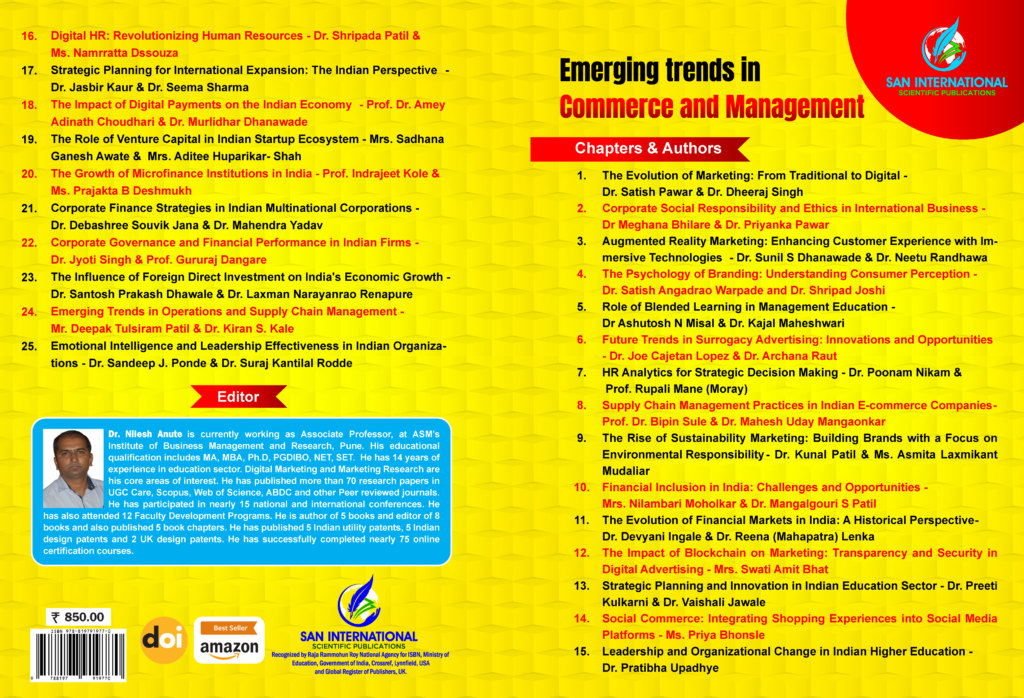Book Title: Emerging Trends in Commerce and Management
Editor: Dr. Nilesh Anute
ISBN: 978-81-979197-7-0
Chapter: 2
DOI: https://doi.org/10.59646/emc2/255
Authors:
Dr Meghana Bhilare, Director/ Professor, Dr. D.Y Patil Institute of Management and Research, Pimpri, Pune, Maharashtra, India.
Dr. Priyanka Pawar, Assistant Professor, Indira College of Engineering and Management, Pune, Affiliated to Savitribai Phule University, Pune, Maharashtra, India.
Learning Objectives
Corporate Social Responsibility (CSR) and ethics play a crucial role in international business, as they shape the behaviour of corporations and have a significant impact on the well-being of societies worldwide. The objective of this chapter is to provide readers with a comprehensive comprehension of corporate social responsibility (CSR) and business ethics in an international context. The text begins by thoroughly examining the fundamental principles of Corporate Social Responsibility (CSR) and business ethics, exploring their historical development and theoretical foundations. Readers will examine the main factors that motivate corporate social responsibility (CSR) and ethical conduct in the international business sphere, including legislative demands, customer expectations, and competitive benefits. The chapter presents a thorough examination of the advantages, such as improved brand image and customer allegiance, as well as the difficulties, such as higher operational expenses and cultural disparities, linked to the implementation of corporate social responsibility (CSR) and ethical practices in different countries. By examining multinational organisations through case studies, readers will acquire practical knowledge of how these concepts are implemented. They will learn from real-life examples of both successful and unsuccessful efforts. The chapter also analyses the influence of corporate social responsibility (CSR) and ethical practices on business performance, emphasising how these practices contribute to sustained profitability and societal well-being.
References
- Auger, P., Devinney, T., & Louviere, J. (2007). Using best–worst scaling methodology to investigate consumer ethical beliefs across countries. Journal of Business Ethics, 70, 299–326. Baumgartner, H., & Steenkamp, J. B. (2001).
- Response styles in marketing research. Journal of Marketing Research, 38, 143–156. Beall, J. (2017). What I learned from predatory publishers. Biochemia Medica, 27(2), 273–278.
- Pranjale R, Anute N (2022) Advertisement Strategies adopted for Confectionery Products by FMCG Companies in India, Journal of Sales, Service and Marketing Research, e-ISSN: 2582-7804, Volume-3, Issue-2 , Page no. 17-21.

